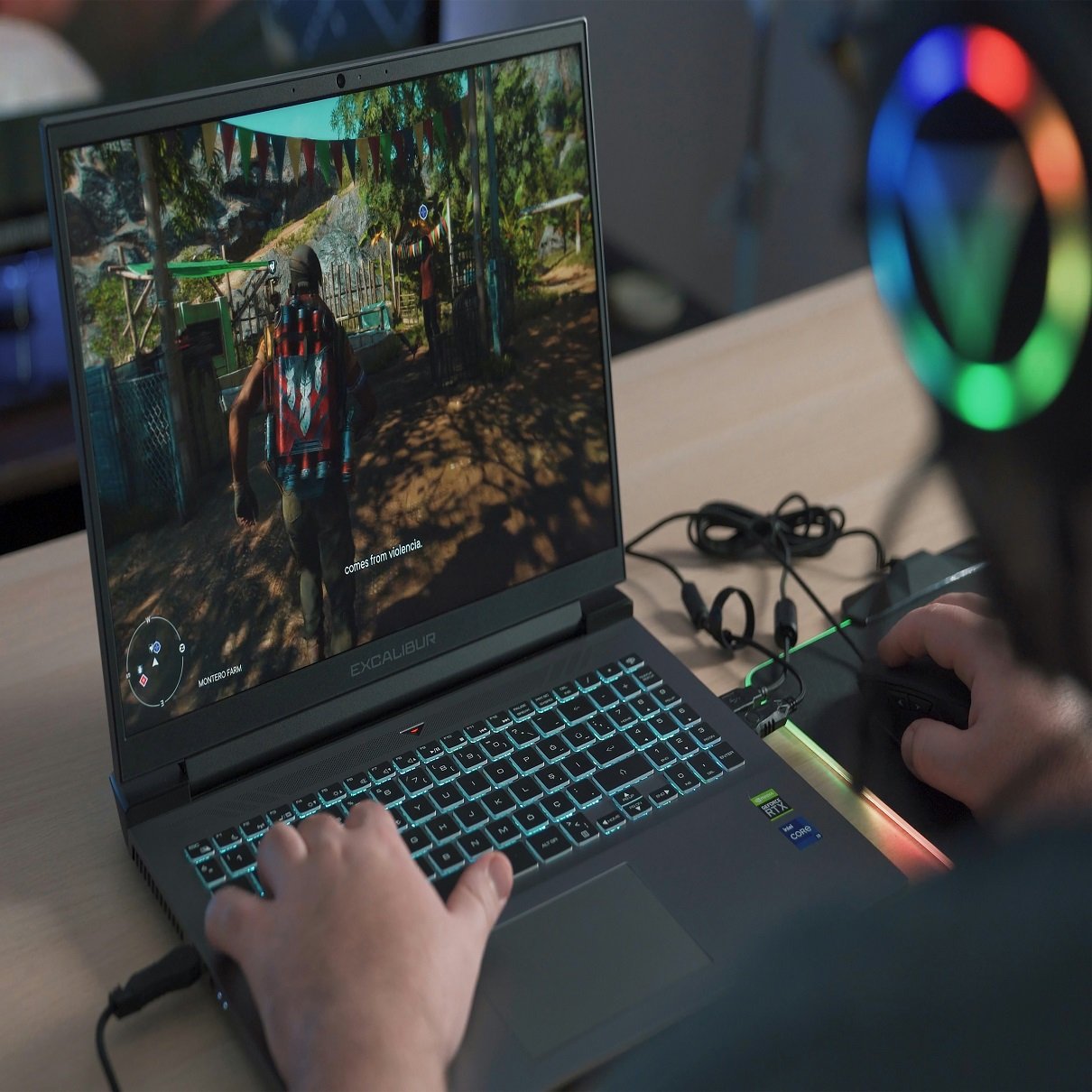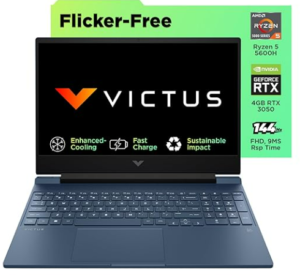When it comes to choosing a gaming laptop, the sheer variety of options available in the market can be overwhelming. Whether you’re a professional gamer, a casual player, or someone who enjoys high-performance gaming on the go, selecting the right laptop involves more than just picking the most expensive model. It requires a careful balance of performance, features, and price. To help you make an informed decision, here’s a breakdown of the most important factors to consider when choosing a gaming laptop:
1. Graphics Card (GPU): The Heart of Gaming Performance
The graphics card (GPU) is arguably the most crucial component of any gaming laptop. It determines how well the laptop can render complex game graphics, manage smooth animations, and support high frame rates. In gaming, a powerful GPU ensures stunning visuals, realistic lighting effects, and fluid movement.
- NVIDIA GeForce RTX Series (e.g., RTX 3060, 3070, 3080, 4090) is the gold standard for gaming. These GPUs support ray tracing and DLSS (Deep Learning Super Sampling), delivering beautiful graphics while maintaining high frame rates.
- AMD Radeon RX Series (e.g., RX 6700M, RX 6800M) is a strong competitor, offering excellent performance at a more affordable price point, particularly for 1080p and 1440p gaming.
Why it’s important: The GPU is responsible for rendering every graphical element of a game. A more powerful GPU means higher-quality graphics and smoother gameplay, which is essential for an immersive gaming experience.
2. Processor (CPU): Power for Multitasking and Game Logic
The CPU (Central Processing Unit) is the brain of the laptop. While the GPU handles graphics rendering, the CPU is responsible for managing game logic, AI calculations, physics simulations, and multitasking. A fast and powerful CPU is key for reducing bottlenecks, especially in CPU-intensive games or when multitasking (e.g., streaming while gaming).
- Intel Core i7 and i9 processors are a popular choice for high-end gaming laptops. Intel’s Core i9 and Core i7 offer 6-8 cores and 12-16 threads, making them well-suited for both gaming and productivity tasks.
- AMD Ryzen 7 and Ryzen 9 series are excellent alternatives, offering 8-12 cores with multi-threading capabilities, ensuring top-tier performance and multitasking efficiency.
Why it’s important: A fast CPU ensures smooth performance in gaming, particularly for modern titles that rely on heavy computations like open-world exploration or complex AI. It also prevents stuttering when running background applications or streaming.
3. RAM: Smooth Gaming and Multitasking
RAM (Random Access Memory) is essential for storing temporary data and allowing quick access to active applications. For gaming laptops, a sufficient amount of RAM ensures smooth gameplay, faster load times, and better multitasking capabilities.
- 16GB of RAM is considered the sweet spot for most modern games. It allows you to run games and have background apps (e.g., Discord, streaming software, browsers) without noticeable slowdowns.
- 32GB of RAM is great for power users who may also edit videos, stream, or run virtual machines while gaming.
- 8GB of RAM is the minimum for most games today, but you might experience stuttering or slowdowns if you run additional applications or multitask heavily.
Why it’s important: More RAM means better multitasking and faster access to game data, improving game performance, especially in more demanding titles.
4. Storage (SSD vs. HDD): Faster Load Times and Game Performance
The storage drive of your laptop impacts not only how much space you have for games but also how quickly your games and apps load. Solid-state drives (SSDs) have largely replaced hard disk drives (HDDs) in modern gaming laptops due to their superior speed and reliability.
- SSD: Look for at least a 512GB SSD or 1TB SSD for faster boot times, quick game loading, and overall improved performance. NVMe SSDs, in particular, offer even faster read/write speeds compared to SATA SSDs.
- HDD: Traditional HDDs are slower and not ideal for gaming. However, they can still be useful for storing large files like movies, music, or older games that don’t need to load as quickly.
- Hybrid Storage: Some gaming laptops come with a combination of SSD and HDD, offering a balance between speed (for system and game files) and larger capacity (for media and less frequently used files).
Why it’s important: SSDs dramatically reduce game load times and overall system responsiveness, making gaming more enjoyable and less frustrating. Long loading screens can significantly detract from the gaming experience, so choosing a laptop with an SSD is crucial.
5. Display: Crisp, Smooth, and Immersive Visuals
The display is another key factor in ensuring a quality gaming experience. A high-resolution and high-refresh-rate display will make your games look stunning and run smoothly.
- Resolution: For most gamers, 1080p (Full HD) is the sweet spot, offering great visual quality without taxing the GPU too much. 1440p (2K) or 4K displays are available but are generally more demanding and best suited for high-end gaming laptops with powerful GPUs.
- Refresh Rate: A high refresh rate (e.g., 120Hz, 144Hz, or 240Hz) ensures smoother gameplay. 120Hz or 144Hz is ideal for most gamers, offering a noticeable improvement over the standard 60Hz.
- Panel Type: IPS panels are preferred because they offer better color accuracy and wider viewing angles, enhancing the visual experience. TN panels are cheaper but may have poorer color reproduction and narrower viewing angles.
Why it’s important: A high refresh rate ensures that the gameplay is smooth and responsive, which is crucial in fast-paced genres like first-person shooters (FPS) or multiplayer online battle arena (MOBA) games. A high-quality display enhances immersion and overall enjoyment.
6. Cooling System: Preventing Overheating and Throttling
Gaming laptops produce a lot of heat due to the powerful components like the CPU and GPU. Without proper cooling, the system can overheat, leading to thermal throttling (when the CPU or GPU slows down to avoid overheating), which negatively impacts performance.
- Dual-fan or multiple-fan cooling systems are common in gaming laptops to ensure heat is effectively dissipated.
- Advanced thermal technologies like liquid cooling and heat pipes in premium gaming laptops further help maintain performance under load.
Why it’s important: An effective cooling system ensures that the laptop can maintain peak performance during long gaming sessions without overheating, which could lead to reduced frame rates or crashes.
7. Keyboard and Input Devices: Comfortable Control
Gaming often requires rapid and precise inputs, so the quality of your keyboard and other input devices (like the mouse or trackpad) is very important.
- RGB Backlighting: Many gaming laptops come with RGB keyboards, which allow for customizable lighting, adding a personal touch to your setup.
- Mechanical Keyboards: Some high-end laptops offer mechanical keyboards, which provide better tactile feedback, faster response times, and improved durability compared to membrane keyboards.
- N-key rollover and anti-ghosting features are also important for competitive gamers to ensure that every keypress is registered.
Why it’s important: A comfortable and responsive keyboard improves your gaming experience, especially in competitive gaming where precision is key.
8. Battery Life: Play On the Go
While gaming laptops are known for having relatively short battery lives due to the power demands of high-performance components, some laptops still offer decent battery performance.
- Battery Life for Gaming: Expect around 3-6 hours of battery life when gaming, depending on the laptop’s components and the intensity of the game.
- Battery Life for Non-Gaming Use: If you plan to use your laptop for productivity tasks (e.g., browsing, word processing), you may get 6-10 hours of battery life.
Why it’s important: If you plan to game while traveling or without access to a power outlet, a battery-efficient laptop will allow you to play for longer periods without having to plug in.
9. Price and Value for Money
Gaming laptops can range from budget options under $1,000 to premium models that cost well over $3,000. The most important thing is to find a balance between the components you need and the price you’re willing to pay.
- Budget Options: Laptops with mid-range GPUs like the GTX 1650 or RTX 3050 are good for casual gaming but may not handle the latest AAA titles at ultra settings.
- High-End Laptops: Laptops with RTX 3070/3080 or RTX 4090, coupled with high refresh rate screens and faster storage, are ideal for competitive and AAA gaming at ultra settings.
Why it’s important: You should aim for a laptop that provides good performance without overspending on unnecessary features. Prioritize your gaming needs (GPU, CPU, display) and get the best value within your budget.
Conclusion
Choosing the right gaming laptop involves a balance of multiple factors: GPU, CPU, RAM, storage, display, **cooling



